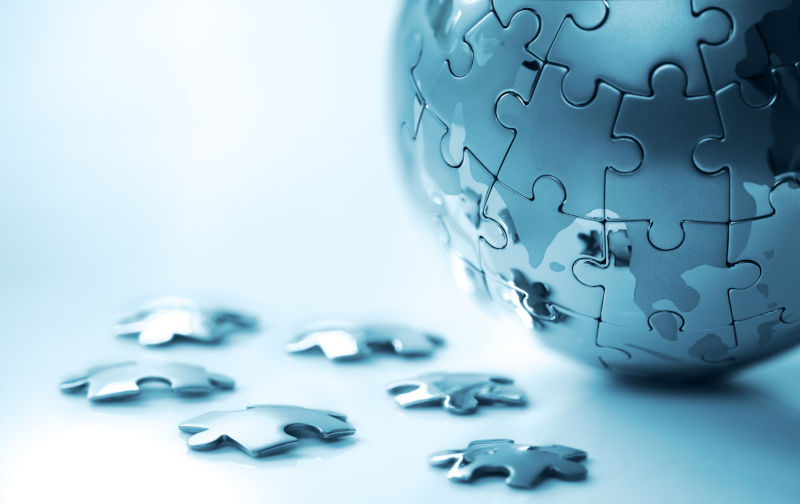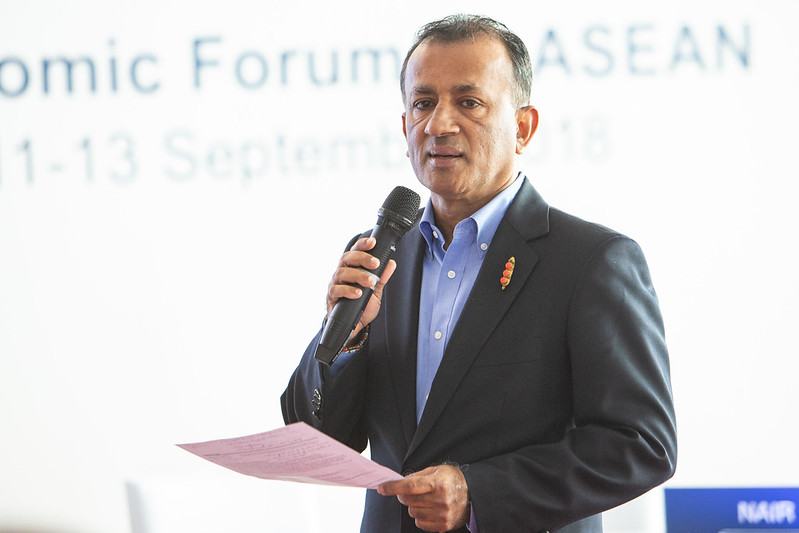The West must prepare for a long overdue reckoning
June 28, 2023
Five major trends illustrate how the world is changing, and that the West must grapple with the reality that it can no longer impose its “leadership” on the world as it once did.
The post-Western, multipolar international order is coming to pass. As the world grapples with the implications of this shift in power, the foundations of a great reckoning are taking shape. This reckoning will challenge the long-held beliefs and structures that have sustained Western dominance of the world for the past few hundred years, exposing along the way the nature of the West’s perceived entitlement to lead the global pecking order. The end result will be a significant re-evaluation of international relations as we know it.
This great reckoning will be driven by five major trends, which are compelling Western nations to confront and adapt to a future where power must be shared with the rest in a multipolar world. A failure to recognise, or attempting to strongly resist, these trends could pose significant risks not only to the West itself but also to global stability. Yet future conflicts can be avoided if this period of change is viewed as an opportunity to build a more equitable world, rather than as a crisis that threatens preferred and entrenched privileges.
Five trends to consider
What future awaits the West—a smooth transition toward multipolarity or a period of instability and potential conflict—will largely depend on how policymakers respond to the following five trends.
First is the unravelling of the hitherto telling of history. The West, across its colonial history, has practiced and perfected the selective interpretation and telling of events, choosing to portray itself as the originator of modern civilisation and a benevolent guiding force. This is now changing; information technologies, such as the Internet and social media, have broken the monopoly over information and history once held by Western gatekeeping institutions (media companies, universities, book publishers, and more). As a consequence, people around the world are recognising that history is no longer confined to Western interpretation—including its projection of benevolence.
A significant component of this has been the West’s frequent failure to acknowledge its own imperfect past. Despite amplifying the perceived wrongdoings of others, it has been silent about its own unsavoury moments, such as early American pioneers’ destruction of First Nation cultures, European exploitation of the African continent, or Australia’s treatment of aboriginal peoples. Addressing these historical episodes matters all the more because they affect current behaviour; Western nations also have problems admitting to contemporary mistakes and intentions.
Non-Western nations can now make clear that their own countries and communities have long histories that not only exist despite Western interpretation, but these histories need to be explored, understood, and told. The West must grapple with this trend and its implications, rather than continue to obscure it in denial. Consider the ongoing diplomatic efforts of the Indian government to compel Great Britain to return the treasure stolen from India, including some of the crown jewels.
The second trend is the re-evaluation of the” rules-based” international order. Policymakers in Washington may not like hearing it, but the concept is the subject of much derision around the world and is widely regarded as a tool used by the West to control global affairs and maintain hegemony. There is ample resentment growing against Western nations given the repeated breaching of their own rules, meaning that the legitimacy of this order is being questioned despite its positive aspects.
Coinciding with this growing frustration is the reality that the distribution of power across more nations is transforming the current world order and creating new opportunities and challenges. China has assumed a more prominent position, offering global public goods such as peacemaking and addressing climate change in a manner Western nations are not willing, or able, to do. Similarly, India is beginning to assert itself, as are other smaller nations, like the UAE and Indonesia.
As more countries determine their own trajectories in the twenty-first century, the West must recognise that the international balance of power has shifted. It cannot continue to impose its will on others—the rise of China and other nations is evidence of such. The West must come to terms with this new reality and recognise that a new, more pragmatic, and multipolar approach is needed, where nations pursue foreign policies committed to co-existence, driven by their own best interests rather than aligning themselves with “one side” or the other.
Third is the unmasking of Western “peacekeeping.” Despite portraying itself as the guarantor of global security, much of the world now views the United States‚ and Europe to a lesser extent, as profiting from war rather than being interested in promoting authentic peace. The Western military-industrial complex—particularly the United States’—is so powerful that it is now well-known to drive U.S. foreign policy to the extent that it perpetuates conflicts to thus profit from war.
At present, the United States and its NATO allies are driving the rise in global military spending, with America spending more on defence than the next ten countries combined. It is similarly well known that almost half of the Pentagon’s budget goes to private contractors each year, and the military-industrial complex donates millions of dollars to U.S. Congressional races, resulting in state capture and significant increases in defence budgets.
The rest of the world has realised that the West alone cannot be trusted to lead global peace efforts, especially if a significant portion of their economies are geared to profit from conflict. In light of this, a positive change is occurring, with China brokering ground-breaking peace agreements—between Saudi Arabia and Iran, for example—while world leaders like Indonesia’s Joko Widodo, India’s Narendra Modi, and Brazil’s Luiz Inácio Lula da Silva pitch peaceful resolutions to modern conflicts.
The fourth trend underway is the dethroning of the Western financial superstructure. That the West makes ample use of its financial might for geopolitical advantage and purposes is no great secret—policymakers and experts openly talk about the “weaponisation of finance” and applying sanctions on countries that do not comply with Western intentions. Likewise, the ability of the United States and its allies to freeze and even confiscate the reserves of sovereign states—Afghanistan, Venezuela, Russia—sent shock waves across the world.
Because of this and the West’s own track record of financial greed and impropriety—which resulted in devastating crises such as the 2007–2008 financial crisis and the recent collapse of Silicon Valley Bank, which has had global reverberations—distrust in and a rejection of Western financial structures is growing.
Efforts are now underway to dismantle the exorbitant privilege bestowed on the United States via its currency. De-dollarisation is very much happening, with the currency’s share of global reserves falling to 47 percent last year, down from 73 percent in 2001. Additionally, countries are seeking alternatives to the SWIFT system, which also has been used in aid of Western-based sanctions and thus alarmed the global majority. As countries with stable currencies gain influence, a more multipolar economic order emerges, reshaping geopolitical alliances, economic diplomacy, and the balance of power within international institutions. This change may grant developing nations greater flexibility in managing their currencies and monetary policies and limit the West’s capacity to unilaterally impose sanctions. Moreover, BRICS nations have recently surpassed the G7 in terms of GDP, signalling a redistribution of economic power and hinting at a future of cooperation in trade, investment, infrastructure, and development assistance.
Fifth and finally, there is the notable collapse of the Western press’ credibility. This comes at a critical juncture, as repeated shortcomings in the last few years have heightened global awareness of Western media’s role in perpetuating the West’s preferred aspects of the current world order—often to the detriment of other countries.
For instance, persistent China-bashing in Western headlines has perpetuated an unproductive and fear-mongering narrative of Beijing as a threat to its own citizens and the world at large. The geopolitical contexts of Hong Kong and Taiwan, though complicated affairs, have been particularly and selectively drummed up to push an “us vs. them” narrative, rather than encouraging understanding between the West and China.
Similarly, overwhelmingly one-sided coverage of the Ukrainian conflict regularly overlooks national and regional geopolitical complexities in the long-standing Russian-Ukrainian relationship and the history of NATO expansion in Europe. A lack of reporting on the Nord Stream bombing, which many believe was perpetrated by a Western nation—with reporting to back this claim up—is a glaring hole that has contributed to the lack of trust in Western media from both non-Western and Western readers alike. Only months later is the Western press quietly admitting potential Western culpability, or at the very least, knowledge.
Moreover, inadequate, and biased coverage of non-Western conflicts, such as those in Yemen, Myanmar, and Palestine, has led to global accusations of neglect, bias, and even racism.
The writing on the wall
Western governments operating in an echo chamber of denial need to reach out to their friends across the world and realise what is obvious to everyone except to themselves: that the world is not like what it was in the post-Cold War era. The old ways are finished, and the West simply does not have the political and financial power, not to mention the international legitimacy, it once did. Western nations must adapt to this changing international environment, rather than stubbornly insisting upon business as usual. Failure to do so will make the world a more dangerous place and erode the credibility and influence of the West even further.
First published in The National Interest June 8, 2023


